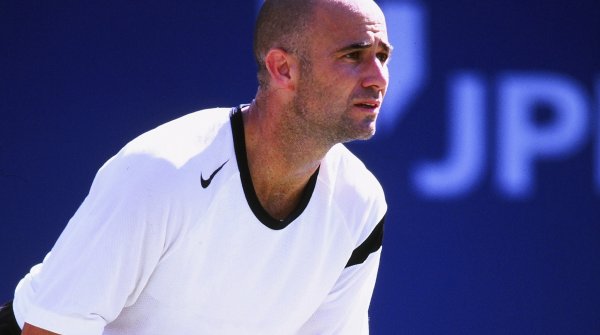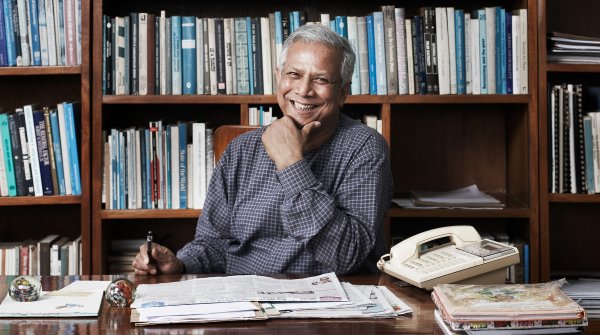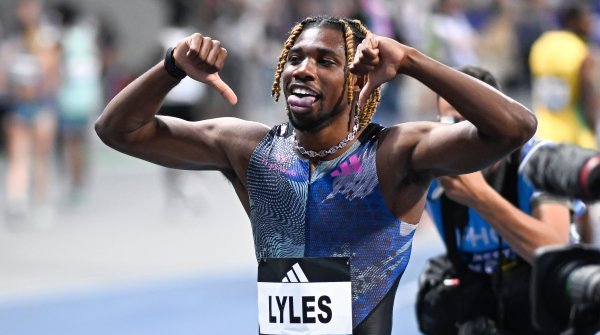Officially, the starters for the Tokyo Olympics were not released until July 5, 2021. But before this, Laurel Hubbard has already overcome an important hurdle: On June 21, the National Olympic Committee of New Zealand (NZOC) nominated the weightlifter for the Tokyo Games. According to reports in the "Guardian", the 43-year-old New Zealander was no longer to be taken out of consideration for the qualification with reference to circles in the weightlifting world federation IWF.
“It’s not my role or my goal to change people’s minds, I would hope they would support me, but it’s not for me to make them do so,” Hubbard stated, showing her stance on her massive Olympia appearance. Leading up to her Olympic appearance as the first trans woman, the International Olympic Committee decided to leave the decision of whether and how transgender athletes can compete up to their respective sports federations, and according to the International Weightlifting Federation, she was eligible to compete, giving way for one of the biggest wins for trans women and men everywhere, not just in the Olympics.
It was the temporary highlight of Hubbard's career as a weightlifter, which was actually already over 20 years ago. At the turn of the millennium, Hubbard was still competing in the men's field, even setting New Zealand records there, buts she retired from the active scene in 2001 in her early 20s. "I started weightlifting in the first place many years ago because it was archetypally male. And I thought to myself, if I do such a masculine sport, maybe I'll turn out that way. Unfortunately, that wasn't the case," shared the New Zealander about her ambitions in the men's field at the time.
Hubbard went on to work for the New Zealand Weightlifting Federation and underwent gender reassignment surgery in 2012. Four years later, she competed in women's events for the first time as a trans person. In 2017, her first major success came with a silver medal at the World Championships in the USA. In 2019, Hubbard secured gold at the Pacific Games in Samoa, and this was only a year after an elbow injury kept her out of action for a long time. At the beginning of 2020, she experienced the highlight of the victory at the IWF World Cup in Rome, leading up to her performance in the Olympics as a trans woman.
When trans weightlifter Laurel Hubbard got to compete at the Tokyo Olympics, it was an incredibly significant moment even though her appearance didn’t last long, and she unfortunately did not win any medals. Hubbard wasn’t able to complete any of her first three lifts on the first night, which ruled her out of contention for a medal in the woman’s over 87-kilogram division. This division was ultimately won by Li Wenwen from China, but as Hubbard left the stage, she made a special heart gesture to the audience. Even without securing a medal, Hubbard forever stands out as a pioneer for trans women at the Olympics.
“Of course, I’m not entirely unaware of the controversy which surrounds my participation in these Games. And, as such, I’d particularly like to thank the IOC, for, I think, really affirming their commitment to the principles of Olympism, and establishing that sport is something for all people. It is inclusive. It is accessible,” were the words of Hubbard considering the varied responses her appearance on the Olympic world stage created. “My performance wasn’t what I had hoped but I’m humbled by the support I’ve received from so many people around New Zealand,” Hubbard shared fondly after her iconic Olympic debut.
The IOC released a new framework following this competition in regard to the eligibility of trans athletes in the future, and this created an opportunity for sports to make their own policies regarding the participation of trans women and men in the Olympics. “We acknowledge that gender identity in sport is a highly sensitive and complex issue requiring a balance between human rights and fairness on the field of play,” the NZOC said in hopes that this issue will be tackled in the correct way from here on out.
Compared to the Tokyo Olympics, the Paris events have set stricter rules and regulations in place concerning trans athletes. The Games in the French capital have already made history as the first truly gender equal games yet, and there has been a lot of interest in the increasing number of trans women and men competing in the Olympics. Although Laurel Hubbard competed in the Tokyo Olympics and became the first openly transgender athlete to do so, she will not be competing in Paris.
However, the massive impact ensured that many more trans athletes are taking to the Olympic stage in the Paris events. Nikki Hiltz is a trans, non-binary athlete, and they are representing the USA at the 2024 Olympics in the female category. Next up is a footballer who plays midfielder for Toronto, Quinn. The trans man Hergie Bacyadan is a boxer from the Philippines who competed in the women’s 75kg category in Paris. This was possible because he was born a biological female, and since he had not undergone hormone therapy, was eligible to compete as a trans athlete in the Olympics.
Of course, with the strict regulations that the IOC has set in place for trans athletes, there are some trans athletes who have not yet been able to make their Olympic dream a reality. Considering the spirit of fairness needs to be upheld, the IOC and international sports federations strive towards trans inclusivity in the Olympics that does not pose an unfair advantage to cis gender athletes. In this light, the American BMX rider Chelsea Wolfe had hoped to qualify for the Olympic cycling competition, but she had not met the requirements of the cycling governing body. The Senegalese-born French sprinter was also barred by the new regulations from the World Athletics' Federation, and while the swimmer Lia Thomas was the first transgender athlete to win a US college title in back in 2022, she lost her case against World Aquatics, losing her shot at the 2024 Olympics.
The Olympic Games in Paris have been one of the most progressive in terms of trans inclusivity, but this has not come without any hiccups. At the centre of the attention is the welterweight boxing match between Angela Carini and Imane Khelif. Carini withdrew after less than a minute in the ring, polarising audiences and viewers from around the world. Khelif was disqualified by the International Boxing Association for not passing their gender eligibility test in 2023, but since this federation is no longer recognised by the IOC, she was able to meet the Olympic criteria.
In a statement, the IOC said: “All athletes participating in the boxing tournament of the Olympic Games Paris 2024 comply with the competition’s eligibility and entry regulations, as well as all applicable medical regulations in accordance with rules 1.4 and 3.1 of the Paris 2024 Boxing Unit. The PBU endeavoured to restrict amendments to minimise the impact on athletes’ preparation and guaranteeing consistency between Olympic Games.”
Even though Hubbard believed she made her debut as a trans athlete at the right time, her success was not well received everywhere. Samoa's Prime Minister Tuilaepa Sailele Malielegaoi commented after her 2019 success: "No matter how you look at it, it's a man. And it's shocking that it was approved in the first place." The Belgian weightlifter Anna Van Bellinghen also commented on Hubbard's Olympic participation: "Everyone who does weightlifting at this level knows that it's true, that this particular situation is unfair to the sport and to the female athletes." It’s clear that trans athletes in the Olympics have been one of the most divisive issues among fans yet.
For Hubbard, who has not given interviews in years, the criticism is nothing new. She said after her World Cup triumph: "I think even 10 years ago the world perhaps wasn’t ready for an athlete like myself, and perhaps it is not ready now. But I got the sense at least that people were willing to consider me for these competitions and it seemed like the right time to put the boots on and hit the platform."
According to Chris Mosier, the first openly trans man to compete in a U.S. Olympic trial in 2020: “This moment is incredibly significant for the trans community, for our representation in sport and for all trans people and non-binary kids to see themselves and know that sport is a place for them.”
In fact, IOC regulations have made it possible for trans women and men to participate in the Olympics as far back as 2003. Despite this, no trans athletes have competed in the following eight Summer and Winter Olympic Games. This made a turnaround in 2015 when trans athletes were ruled to be eligible to compete in the Olympic women's field if their testosterone levels are below 10 nanomoles per litre of blood for at least 12 months prior to the competition. The rule is controversial, since on the one hand, it allows trans athletes to compete in the women’s field without undergoing gender reassignment surgery. They are allowed to compete, however, after hormone therapy, which some deem to still be an unfair advantage for trans people in the Olympics.
Critics complain that the permitted hormone level for trans athletes is too high compared to the testosterone level of cis women. A study published in December 2020 on trans women in the US Air Force did conclude that they had a 30% strength advantage over cis women after the transformation. That advantage, however, would fade after two years of hormone therapy. In any case, the stage was set for Laurel Hubbard in Japan, and she has immortalised herself in the history books as a victor for the LGBTQ+ community as the first trans woman in the Olympics.
Apart from her historic Olympic participation, she also deserves what she asked for in one of her rare interviews in 2017: "I just wish that people, however they feel about people in my situation, treat people like me with respect. What more can you ask for."
Since different sporting federations set the requirements for trans athlete eligibility in the Olympics, they do differ from sport to sport. The World Athletics and swimming governing body have adopted the main guideline that trans woman who compete in the women’s category need to have transitioned before the 12 of age. This is in an effort to prevent any biological advantages from male puberty from coming into play.
Cycling follows these guidelines for the women’s category as well, but the men’s category has been replaced by an open category where trans athletes are allowed to compete. Rowing, for example, has an additional criterion that the athletes need to have a testosterone concentration less than 2.5 nanomoles per liter for 2 years before competing. Triathlon, tennis and archery also require testosterone levels to be under a certain level, and Rugby has followed suit from the IOC guidelines.
- Awards
- Mountain sports
- Bike
- Fitness
- Health
- ISPO Munich
- Running
- Brands
- Sustainability
- Olympia
- OutDoor
- Promotion
- Sports Business
- Textrends
- Triathlon
- Water sports
- Winter sports
- eSports
- SportsTech
- OutDoor by ISPO
- Heroes
- Transformation
- Sport Fashion
- Urban Culture
- Challenges of a CEO
- Trade fairs
- Sports
- Find the Balance
- Product reviews
- Newsletter exclusive area
- Magazine









